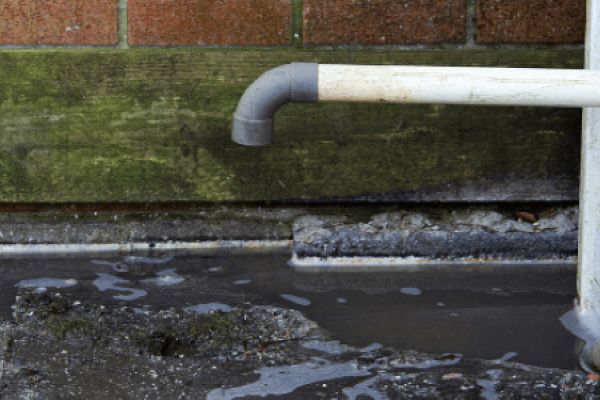In this article
Navigating Drainage Compliance - A Comprehensive Guide to Building Regulations in the UK
The world of drainage regulations in the UK is a complex one, and drainage systems must meet and be maintained to a shopping list of standards, all aimed at keeping the public and the environment safe from the hazards of foul water and flooding.
In this guide, we’re going to run over the importance of these drainage regulations, the key drainage building regulations, navigating local and national guidelines, the importance of professional assistance and certification, the consequences of non-compliance, and why you should stay up to date on the latest standards.
Importance of Drainage Building Regulations
Drainage regulations are in place to control the release and management of foul water. Foul water is defined as water that runs away from or out of plumbing systems such as sinks, toilets, washing machines and dishwashers, or pretty much anything that releases wastewater.
This water needs to be drained away from buildings for the sake of public and environmental health, but also because improper drainage can lead to water accumulating in and around buildings, where it can damage them, causing rot, subsidence and mould.
Drainage regulations exist to ensure that wastewater is handled safely and responsibly, and not left to cause a hazard.
Key Regulations for Residential Drainage
There is a primary set of drainage building regulations that must be adhered to, so it’s worth taking the time to understand them a little better. These are the Building Regulations (2010), or more specifically, Section H of these regulations.
The current iteration of these guidelines came into effect in 2015, and closely governs foul water drainage, wastewater treatment systems and cesspools, rainwater drainage, building over sewers, separate systems of drainage, and solid waste storage.
They include detailed stipulations such as where a septic tank can be placed, how rainwater is drained from roofs and surrounding areas, as well as what standards any drainage equipment needs to be built to.
Compliance with these drainage regulations is crucial, as non-compliance not only risks environmental and health hazards, but also leaves you exposed to prosecution, fines, and costs associated with undoing any non-compliant work.
Navigating Local and National Guidelines
As we’ve mentioned, and as you’ve probably found yourself by this point, the world of rainwater drainage regulations in the UK, and indeed other forms of foul water drainage guidelines, is a complex one.
As a result, in most cases we’d recommend hiring a professional to undertake any work. Registered tradespeople who understand specific drainage regulations will be able to provide work that is compliant with the necessary standards, and even formally certify it – which leads us neatly onto our next point.
Professional Assistance and Certification
Your drainage systems should be regularly inspected for any faults and blockages, as spotting these early will help you handle them before they become larger, more costly issues. To a certain extent, this is something you can keep an eye on yourself, as many drainage issues won’t be able to hide themselves from you for too long.
However, having a professional carry out regular, preventative maintenance is the ideal solution. They will be able to conduct thorough investigations of your drainage systems and address any problems at the earliest possible opportunity. Any costs involved in hiring professionals will be dwarfed by the bill you’ll be footed with should a problem go unnoticed and spiral.
Certified professionals can also register with the government. Once registered, they can provide services to a legally-recognised standard, as well as certify the work that they carry out. From a business perspective, these certifications act as proof that work was carried out to the required standard according to drainage regulations and at the intervals that it should be.
From a domestic standing, you can hold onto the certifications and pass them on to the next buyer when you come to sell your home, as they can help increase its value, much like the service record on a car.
Consequences of Non-Compliance
Primarily, the ramifications for non-compliance with drainage regulations are legal in nature, and can include prosecution, fines, and orders to remove any non-compliant structures.
Additionally, wastewater that isn’t correctly drained can lead to health and environmental risks. It can become stagnant as well as cause mould and decay, which all pose risks to public health. If left for long enough, standing wastewater can even degrade the foundations of a building or the earth around them and lead to issues with subsidence and even collapse.
Staying Updated on Evolving Standards
Building and drainage regulations in the UK are strict, and always evolving. However, it’s your responsibility to know the law, so getting to know drainage building regulations and staying up to date is critical.
The best way to stay up to date is by paying close attention to any updates from the government, as well as engaging the services of trusted, accredited professionals, whose job it is to operate only according to the very latest guidelines and legislation.
Speak to the Experts
Because the world of drainage regulations is so complex and pitfalls are all too easy to find, the best course of action is to work with a registered professional who can help you navigate the requirements with ease.
At Cotswold Drainage, we have more than 25 years of experience in drain care and maintenance, and can keep your drainage systems functional, clean, and compliant. Just reach out to our expert team today using our contact form, or by calling us on 01386 882324.
Get in touch
Contact our friendly and professional team via form, phone or email for any drainage issues you may have.
From blocked drains to septic tank repairs and replacements, we're here to help. We have over 25 years of experience and offer 24/7 emergency callouts.
-
01386 882324
-
WhatsApp
-
This email address is being protected from spambots. You need JavaScript enabled to view it. -
See what our customers think


